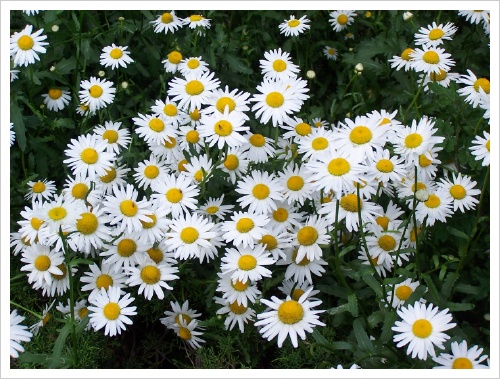"Auld Lang Syne" is a song by Robert Burns (1759-1796), although a similar poem by Robert Ayton (1570-1638), as well as older folk songs, use the same phrase, and may well have inspired Burns.
In any case, it is one of the better-known songs in English-speaking countries, and it is often sung at the stroke of midnight on New Year's Day. Like many other frequently sung songs, the melody is better remembered than the words, which are often sung incorrectly, and seldom in full.
The song is commonly accompanied by a traditional dance. The group who is singing forms a ring, holding hands for the first verse. For the second verse, arms are crossed and again linked. For the third verse everyone moves in to the centre of the ring and then out again.
The song's (Scots) title may be translated into English literally as 'old long since', or more idiomatically 'long ago', or 'days gone by'. In his retelling of fairy tales in the Scots language, Matthew Fitt uses the phrase “In the days of auld lang syne” as the equivalent of “Once upon a time”. In Scots Syne is pronounced like the English word sign ? IPA: [sain]?not [zain] as many people pronounce it.
| Burns’ verse: | English translation: |
| 1.Should auld acquaintance be forgot, | Should old acquaintance be forgot, |
| and never brought to mind ? | and never brought to mind ? |
| Should auld acquaintance be forgot, | Should old acquaintance be forgot, |
| and auld lang syne ? | and auld lang syne ? |
| CHORUS: | CHORUS: |
| (For auld lang syne, my dear, | (For auld lang syne, my dear, |
| for auld lang syne, | for auld lang syne, |
| we’ll tak a cup o’ kindness yet, | we'll take a cup o’ kindness yet, |
| for auld lang syne.) | for auld lang syne.) |
| 2.And surely ye’ll be your pint-stoup ! | And surely you’ll buy your pint cup ! |
| And surely I’ll be mine ! | And surely I’ll buy mine ! |
| And we’ll tak a cup o’ kindness yet, | And we'll take a cup o’ kindness yet, |
| for auld lang syne. | for auld lang syne. |
| CHORUS | CHORUS |
| 3.We twa hae run about the braes, | We two have run about the hills, |
| and pou’d the gowans fine ; | and picked the daisies fine ; |
| But we’ve wander’d mony a weary fit, | But we’ve wandered many a weary foot, |
| sin’ auld lang syne. | since auld lang syne. |
| CHORUS | CHORUS |
| 4.We twa hae paidl’d in the burn, | We two have paddled in the stream, |
| frae morning sun till dine ; | from morning sun till dine (dinner time) ; |
| But seas between us braid hae roar’d | But seas between us broad have roared |
| sin’ auld lang syne. | since auld lang syne. |
| CHORUS | CHORUS |
| 5.And there’s a hand, my trusty fiere ! | And there’s a hand my trusty friend ! |
| And gies a hand o’ thine ! | And give us a hand o’ thine ! |
| And we’ll tak a right gude-willie-waught, | And we’ll take a right good-will draught, |
| for auld lang syne. | for auld lang syne. |
| CHORUS | CHORUS |
(우리의 정서에 맞게 번역을 해 보았다.
- 오랫만에 잠간 만나 친구를 좋아하면서 정을 주고 받는 모습이 너무 아름답기만 하다)
오랫 동안 보지 못했던 마음의 친구를 만났다.
그 동안 만나지 못했던 것이 원망스러웠다.
언덕에서 이쁜 데이지꽃을 서로 따주면서
개울가에 첨벙대고 물놀이 하던
잊을 수 없이 다정한 소꿉 친구였다.
세상 살다보니 힘들었고 잦은 풍파도 만났다.
그래서 못 만난 것이다.
이제라도 만나보니 너무너무도 좋다.
둘이서 손 마주 잡고 앞으로 자주 만나자는 기약주를 들어 마신다
만남의 기쁨과 석별의 아쉬운 정을 담은 노래이다.
이 노래는 일제 압박하에 있던 시절 우리 애국가 가사로 불렀던 노래이기도 하다.
이 노래의 의미를 알고 부르도록 소개해 보았다.![]()
오랫만이야, 친구야 !
오랜 벗을 잊어야 했던가
맘에도 떠오르지 않던가 ?
오랜 벗을 잊어야 했던가
그리도 긴 동안을
( 오햇만이야, 친구야
오햇만이야
우리 이제 우정의 잔을 마시자
오햇만이야 )
자 자네도 한 잔 사고
자 나도 한 잔 사지
우리 이재 우정의 잔을 마시자
오햇만이야
우리 둘이서 언덕에서 뛰놀며
예쁜 데이지꽃도 따고 그랬지
그런데 우리는 힘들게 세상 살아 왔지
오랫동안을
우리 둘이서 냇물에 물장난치고 놀았지
아침부터 저녁때 까지
그런데 우리사이 세상 풍파가 일었어
오랫동안에
자 여기 내 손. 내 맘의 친구야
자네의 손 좀 주어 봐
그래 우리 바로 우정의 잔을 들이키자
오랫만이야
2007.8.2.
'♣♣ 내 좋아하는 ♣♣ > Foreign Music' 카테고리의 다른 글
| Seven Daffodils (0) | 2007.08.04 |
|---|---|
| When It's Lamplighting Time In The Valley (0) | 2007.08.04 |
| [스크랩] Nana Mouskouri (0) | 2007.08.01 |
| 귀에 익은 추억의 pops - signal musics (0) | 2007.07.18 |
| Monika Martin, Best Collection (0) | 2007.07.16 |

